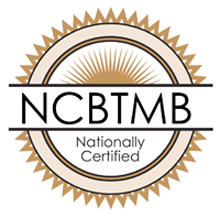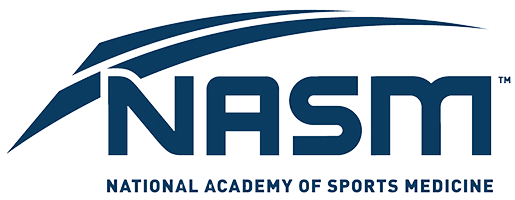
Are you passionate about health and fitness and considering a career as a fitness trainer? This comprehensive guide will walk you through the educational requirements and certification paths needed to turn your passion into a rewarding profession. We’ll explore the essential qualifications, from basic certifications to advanced degrees, that can help you stand out in this dynamic field. Whether you’re looking to start a new career or enhance your existing fitness expertise, understanding these educational requirements is your first step toward becoming a qualified fitness professional who can make a real difference in people’s lives.
Understanding the Role of a Fitness Trainer
A fitness trainer is a qualified health and wellness professional who helps clients achieve their physical fitness goals through personalized exercise programs and lifestyle guidance. According to the Bureau of Labor Statistics, while a high school diploma is the typical entry-level requirement, employers increasingly prefer candidates with specialized training or degrees in relevant fields.1 These professionals combine their knowledge of human anatomy, exercise science, and motivational techniques to create safe and effective workout plans.
As a certified fitness trainer, you’ll have the opportunity to work one-on-one with clients, lead group fitness classes, and provide expert guidance on exercise form and technique. You might specialize in areas like strength training, cardiovascular fitness, or sports-specific conditioning, allowing you to tailor your services to your interests and client needs.
The path to becoming a successful fitness trainer involves more than just being physically fit – it requires proper education, certification, and ongoing professional development. Let’s explore what it takes to build a strong foundation in this growing field.
Core Responsibilities of a Fitness Trainer
The role of a fitness trainer extends far beyond simply demonstrating exercises. As noted by NASM, one of the industry’s leading certification bodies, fitness trainers must be prepared to handle diverse responsibilities while maintaining the highest standards of professionalism and safety.2
- Client Assessment and Goal Setting: Evaluate clients’ fitness levels and create realistic, achievable fitness goals
- Program Design: Develop customized workout plans that address specific client needs and objectives
- Exercise Instruction: Demonstrate proper form and technique for various exercises to prevent injury
- Progress Monitoring: Track and document client progress, adjusting programs as needed
- Nutrition Guidance: Provide basic nutritional advice to support fitness goals
- Safety Supervision: Ensure proper use of equipment and maintain a safe exercise environment
- Motivation and Support: Offer encouragement and accountability to help clients stay committed
- Record Keeping: Maintain detailed client files and workout histories
- Emergency Response: Be prepared to handle basic fitness-related emergencies
- Continuing Education: Stay current with industry trends and best practices
Success in these responsibilities requires a combination of technical knowledge, interpersonal skills, and professional certifications. Let’s examine the specific skills that make a fitness trainer effective in their role.
Essential Skills for Success
Becoming an effective fitness trainer requires a unique blend of technical expertise and interpersonal abilities. Industry leaders emphasize that successful trainers must possess both physical capabilities and strong communication skills to guide clients effectively.3
- Communication Excellence: Clear instruction and motivation are crucial for client success and safety
- Anatomical Knowledge: Understanding human body mechanics ensures safe and effective exercise prescription
- Problem-Solving Ability: Adapting programs to accommodate injuries or limitations is essential
- Organizational Skills: Managing multiple clients and schedules requires excellent time management
- Empathy and Patience: Supporting clients through challenges demands emotional intelligence
- Technical Proficiency: Mastery of exercise techniques and equipment is fundamental
- Business Acumen: Basic marketing and client retention skills help build a sustainable career
These core competencies form the foundation of a successful fitness training career. To develop these skills effectively, proper education and training are essential. Let’s explore the educational pathways available to aspiring fitness trainers.
Educational Pathways in Fitness Training
WellSpring School of Allied Health offers comprehensive training programs designed to prepare you for a successful career in fitness training. Our curriculum combines hands-on experience with theoretical knowledge, ensuring graduates are well-equipped to meet the demands of the fitness industry. The programs focus on essential areas including exercise science, nutrition, and client coaching techniques.
At WellSpring, you can choose between two flexible program options. The 30-week* Fitness Training Certificate program provides a focused path for those eager to enter the field quickly. For those seeking more extensive training, the 19-month* Fitness & Nutrition AOS program offers a deeper dive into nutrition science and advanced training methodologies.
WellSpring’s programs go beyond basic certification, providing students with practical experience and professional networking opportunities. These educational pathways open doors to various career opportunities in the fitness industry, setting graduates up for long-term success.
Career Opportunities in Fitness Training
The fitness industry offers diverse career paths for qualified professionals. Graduates of WellSpring’s programs find themselves well-positioned for various exciting roles:
- Personal Trainer: Work one-on-one with clients in gyms, health clubs, or private settings
- Group Fitness Instructor: Lead engaging workout classes for multiple participants
- Corporate Wellness Coach: Design and implement employee fitness programs
- Sports Performance Specialist: Train athletes and sports teams
- Online Fitness Coach: Provide virtual training services to clients worldwide
- Fitness Program Director: Manage fitness facilities and staff teams
- Specialized Population Trainer: Work with seniors, youth, or rehabilitation clients
The demand for qualified fitness professionals continues to grow, offering excellent opportunities for career advancement and specialization. With proper certification and training from WellSpring, you’ll be prepared to pursue these rewarding career paths.
Take the First Step Toward Your Fitness Career
The path to becoming a certified fitness trainer combines essential education, practical training, and professional certification. From understanding human anatomy to mastering effective communication techniques, the knowledge and skills you’ll gain create a strong foundation for a successful career in fitness training. The field offers numerous opportunities for growth, specialization, and personal fulfillment.
WellSpring School of Allied Health provides the comprehensive education and hands-on experience you need to excel in this dynamic field. Whether you choose the 30-week* Certificate program or the 19-month* AOS Degree, you’ll receive quality instruction from experienced professionals who understand what it takes to succeed. Don’t wait to pursue your passion for fitness and helping others achieve their health goals. Contact WellSpring today to learn more about our fitness training programs and take the first step toward your new career.
*Program length when completed in normal time.
[1] https://www.bls.gov/ooh/personal-care-and-service/fitness-trainers-and-instructors.htm
[2] https://www.nasm.org/become-a-personal-trainer
[3] https://www.nasm.org/how-to-become-a-personal-trainer




